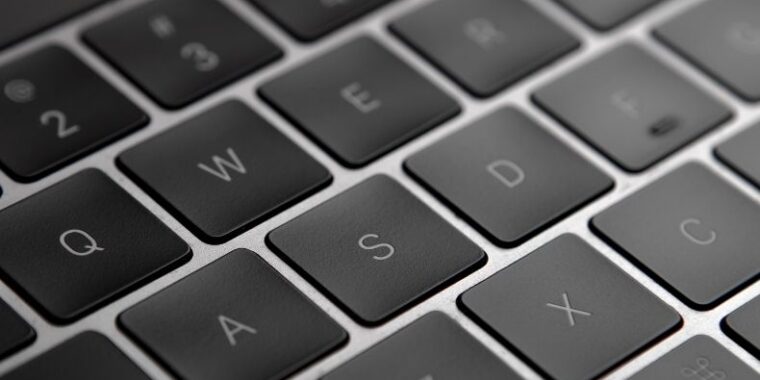
You may be confused about whether or not to replace the plate on your mechanical keyboard. As we all know, keyboard plates are an essential part of every keyboard design, so it’s important to check them periodically.
Whether it’s for improving your old keyboard or thirst for a flawless keyboard plate, it’s always better to know which might be better when you’re undecided between a brass plate or an aluminum plate.
Luckily, we’ve covered all the ins and outs of the brass vs aluminum plate keyboard to eliminate all your confusion about which backplate might suit your interest the best. To learn more, read on.
- What are Aluminum Keyboard Plates?
- What are Brass Keyboard Plates?
- Advantages and Disadvantages of Aluminum Keyboard Plates
- Advantages and Disadvantages of Brass Keyboard Plates
- Brass Vs Aluminum Plate Keyboard – What are the Differences?
- What is the Best Keyboard Backplate Material for You?
- Frequently Asked Questions
- Final Words
What are Aluminum Keyboard Plates?
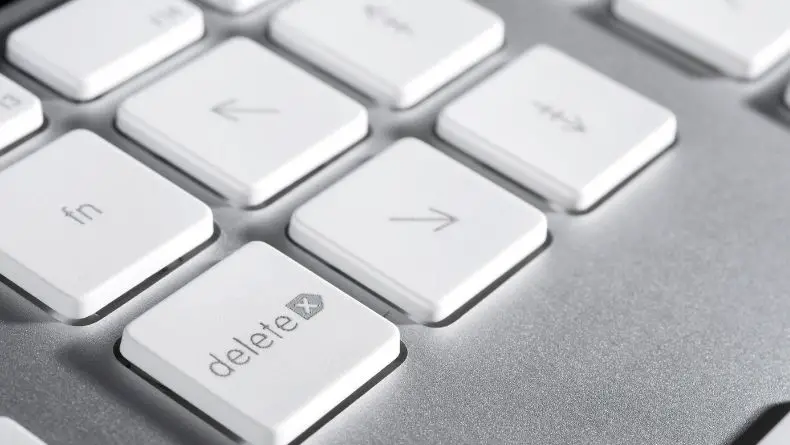
Aluminum plates are the most popular keyboard plates. They are flexible and produce a higher-pitched keypress sound, making them easy to identify.
Aluminum plates are often used in keyboards due to their lightweight and low cost. In addition, aluminum keyboard plates are easy to get your hands on and don’t need much skill to learn.
A keyboard made of aluminum will never break. When combined with tick and tactile switches, aluminum plates provide a louder, higher-pitched sound and a firmer feel than other materials.
Aluminum back plates are more rigid and robust than polycarbonate. However, they are not as robust as brass backplates and can flex under mild pressure.
There are a variety of aluminum options to choose from. Aluminum back plates are more expensive than polycarbonate plates but less expensive than brass.
What are Brass Keyboard Plates?
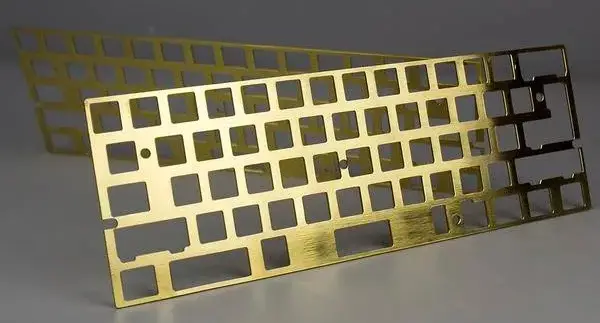
Brass keyboard plates are trendy, even though they aren’t yet well-known. These keyboard plates are rigid and make deeper sounds when you press the keys.
Mechanical keyboards can be a pain to type on because of their deep keypress sound. They are heavier and denser than polycarbonate and aluminum backplates, as keyboards presses will cause the keyboard to bend.
These backplates have no flex to them all. Brass backplates are the most durable, but they are also the costliest.
Certain users have criticized brass backplates for producing a harsher sound. High-pitched sounds are enhanced by this material, making PCB and tactile switches much more noticeable. Because there is no bend with linear switches, they are more sensitive and provide a deeper sound.
The color of brass keyboard plates is one of its most distinctive features. They are distinguished from other backplates by their gold color.
However, keep in mind that brass will eventually discolor or oxidize over time if it’s not well treated. If you’ve ever used a brass item, you’ll know that tarnishing is the biggest issue.
Advantages and Disadvantages of Aluminum Keyboard Plates
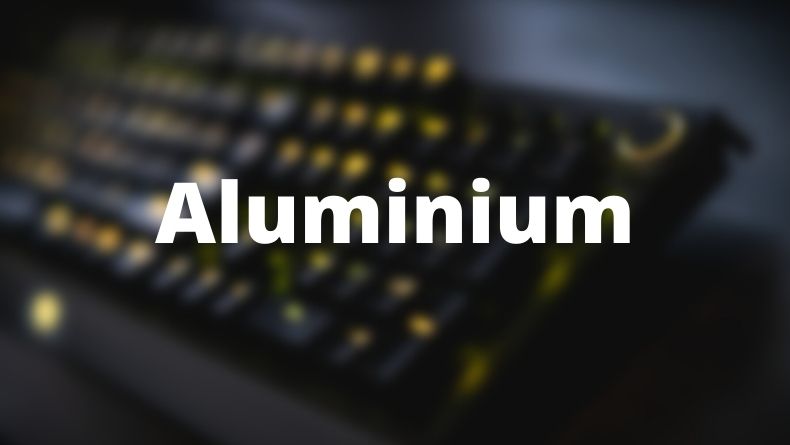
There are some advantages and disadvantages when it comes to buying an aluminum keyboard, including:
Advantages
- Made of heavy-duty materials
- Available in a variety of shades
- Affordable
- Inflexibility and higher-pitched keypresses
- More lightweight
Disadvantages
- Some plates flex easily.
- Some may find it too lightweight.
Advantages and Disadvantages of Brass Keyboard Plates
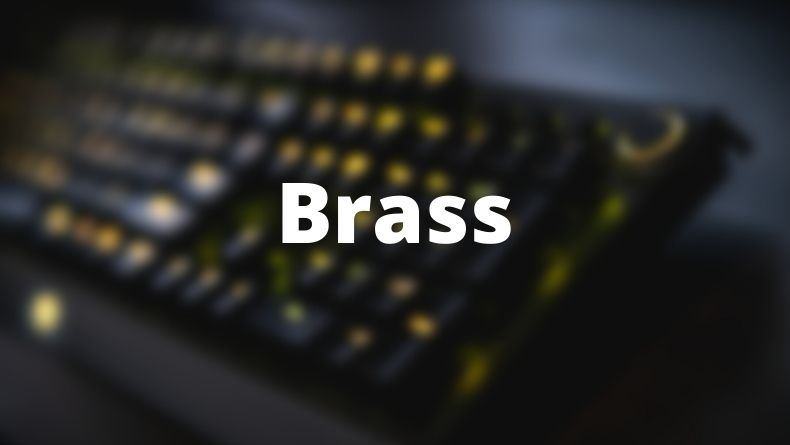
Let’s have a look at some of the pros and cons of brass keyboard plates:
Advantages
- A sturdy board with high-quality material
- It has a louder, high-pitched sound.
- No bend in these backplates
- A denser keyboard than polycarbonate or aluminum plate materials
Disadvantages
- Stiffness doesn’t provide a good typing experience
- The brass plate is expensive.
- Brass keyboard plates can tarnish.
- It is available only in one color.
Brass Vs Aluminum Plate Keyboard – What are the Differences?
After learning about the pros and cons of brass and aluminum keyboard plates, you can easily understand the difference between these two plates to decide which one you prefer.
Durability
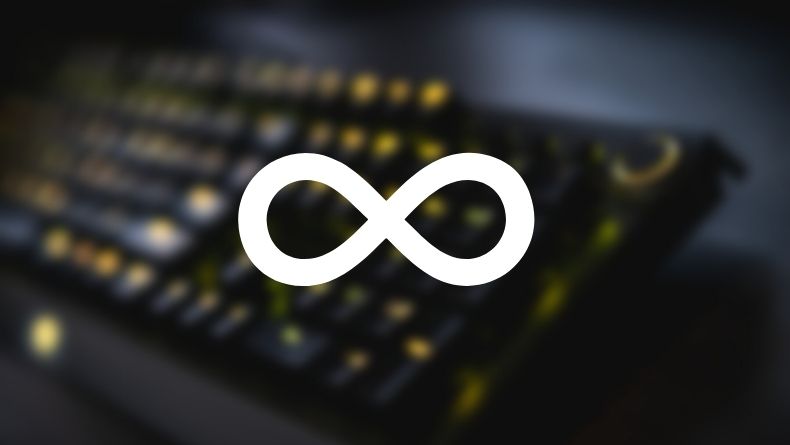
Brass outperforms aluminum in terms of durability due to its higher density. When you’re using a PC, it’s important to determine whether you prefer copper or aluminum keyboard plates.
Aluminum is vulnerable to damage due to its flexibility, but a brass keyboard plate is almost impossible to damage, even after constant use.
Brass is the ideal option to choose if you want to guarantee that your keyboard will survive for a long time.
Sounds
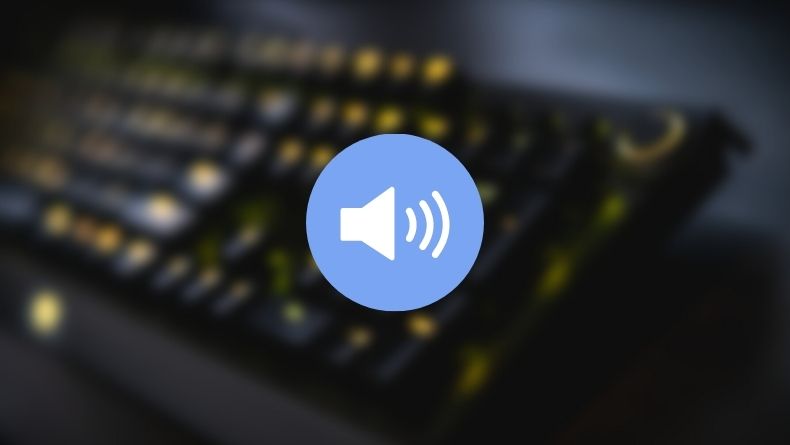
Aluminum keyboard plates have a more flexible feel than brass ones. Even if you are an expert in typing, you’ll notice that the feedback is much stiffer once a key has bottomed out on a steel plate compared to a plastic plate.
If you prefer a lighter keyboard and a more fantastic range of motion, allowing you to type more quickly, then aluminum plates are going to be a better option for you compared to brass plates.
As for sound, brass keyboard plates generate a deeper, lower-pitched sound than aluminum keyboard plates, making keypresses on brass plates seem more satisfying than on the aluminum plate keyboard.
Convenience
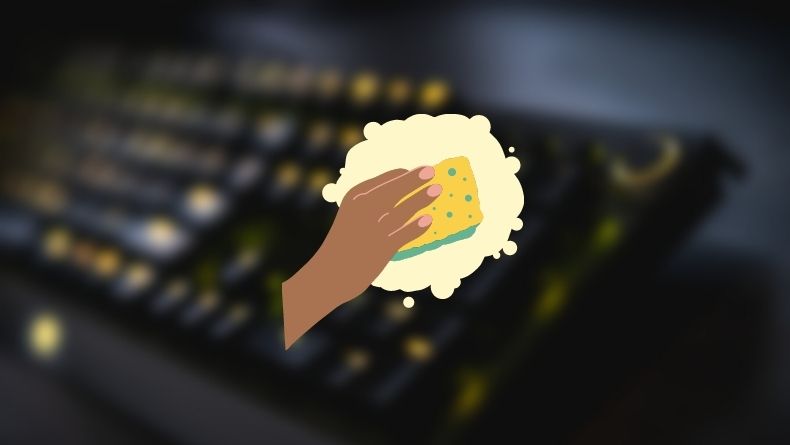
Brass keyboard plates are somewhat less comfortable than aluminum plates because of the risk of tarnishing. On the other hand, aluminum keyboard plates need no maintenance at all.
Even though tarnishing will not significantly affect your experience, it will need to be cleaned and maintained regularly to ensure that it remains in excellent condition.
Cost

While the aluminum plate is a material of choice for most keyboards because of its low cost, a brass plate may cost as much as $20-30 or more than an aluminum plate due to the higher cost of the brass material itself.
Despite the higher cost of brass plates, some prefer the harsh and high-pitched sound along with the rigid and tactile switches that come along with it.
On the other hand, aluminum plates are inexpensive and more affordable despite their popularity. Since it’s both strong and lightweight, affordability is an added bonus when you choose an aluminum plate.
What is the Best Keyboard Backplate Material for You?

Aluminum and brass keyboard plates are a matter of personal preference; therefore, either plate can work for you.
Using a backplate keeps keyboard switches firmly in place while also providing a mounting style. Knowing which one is the finest might be challenging when choosing a keyboard backplate.
Price, weight, and durability are just a few considerations when buying a backplate.
There used to be a limited number of plate options. No one could mess with it since they weren’t movable. Thanks to the wide variety of plate materials available, it’s now possible to swiftly swap one plate material for another.
The polycarbonate, aluminum and brass varieties are only a few options. And the materials affect the keyboard’s endurance and the sound it produces while typing.
Alloys such as aluminum and brass are among the most common materials. Metal plates like aluminum, brass, and steel offer your keyboard a more solid feel. However, this stiffness affects your typing quality. It also makes pings and other noises when you press a key, which can be very distracting.
On the other hand, POM, polycarbonate, and FR4 keyboards provide a more comfortable typing experience.
Most custom keyboards enable you to experiment with various materials before purchasing, which will result in higher satisfaction.
Frequently Asked Questions
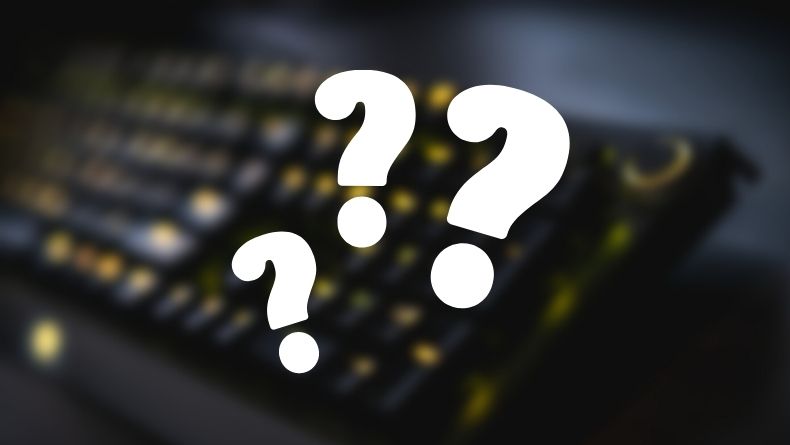
Copper-zinc alloy brass is an attractive and useful plate material that adds elegance to any keyboard construction. It is the greatest option for those who are looking for a long-lasting keyboard.
Brass, a copper-zinc alloy, is denser than aluminum and, hence, more durable. While aluminum’s elasticity makes it susceptible to breakage, a brass keyboard plate is almost indestructible. This makes brass a better plate for a keyboard.
This substance enhances the high-pitched sound of tactile and click switches. There is no flex in linear switches, but it also produces a deeper sound when you type.
It all comes down to the alloy. Some brasses don’t oxidize significantly, while others do. The brass plate resists oxidation. If you want to prevent oxidation, add an oil coating. Unless you have a carbon fiber allergy, there’s nothing to worry about.
Final Words
Modern keyboards provide a vast range of customization possibilities, making it possible to personalize every key on the keyboard. But in the end, it’s all about what you can afford and what you desire.
Even if it isn’t the most common customization, experimenting with keyboard plates may be fun and rewarding to customize your typing experience.
Plate customization is something every mechanical keyboard fan should try since the plate directly influences both the feel and sound.
Hence, why we tried to explore all the details on everything you need to know about brass vs aluminum plate keyboard. Next time you go shopping for your keyboard, you won’t feel confused anymore.